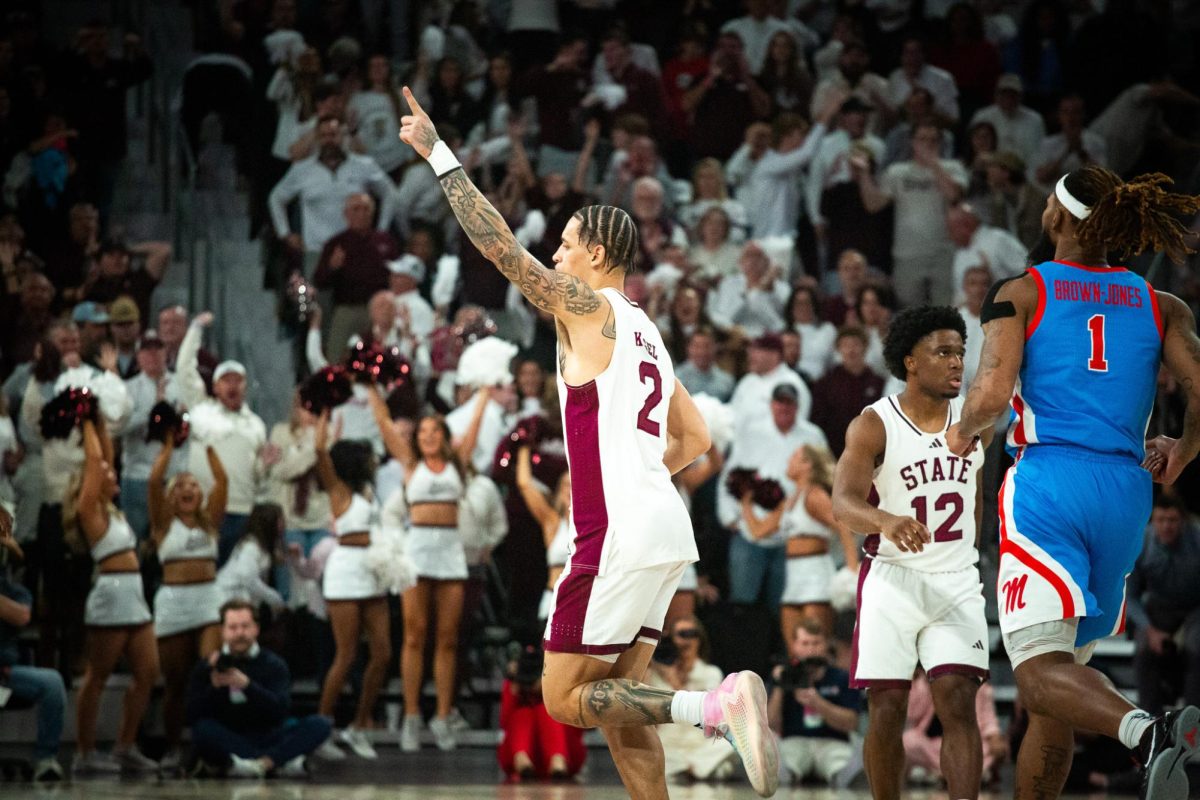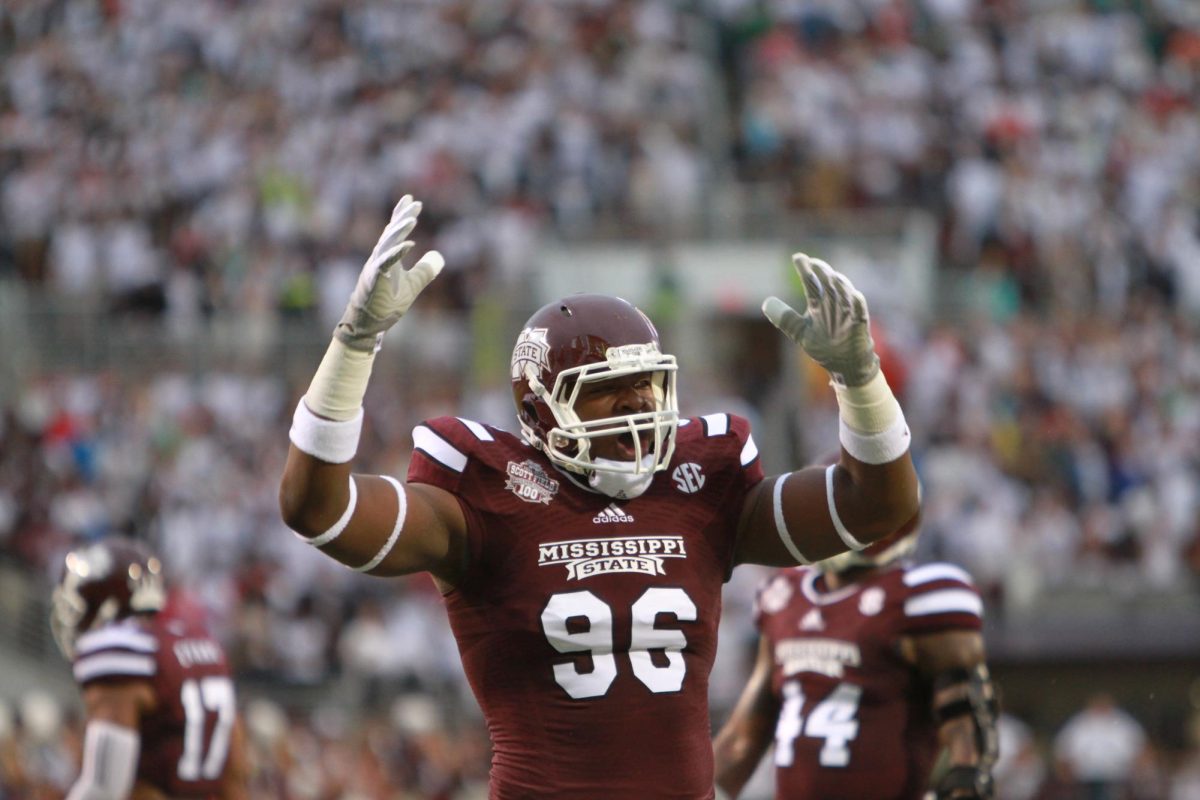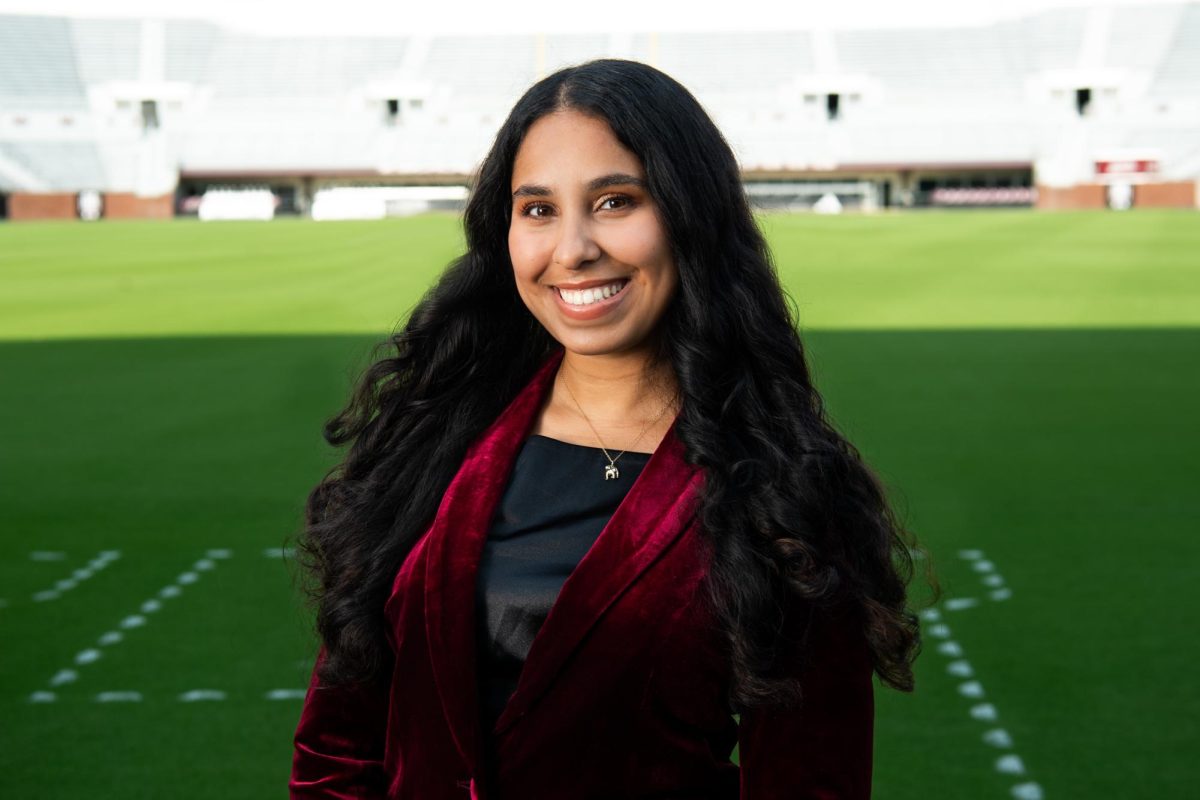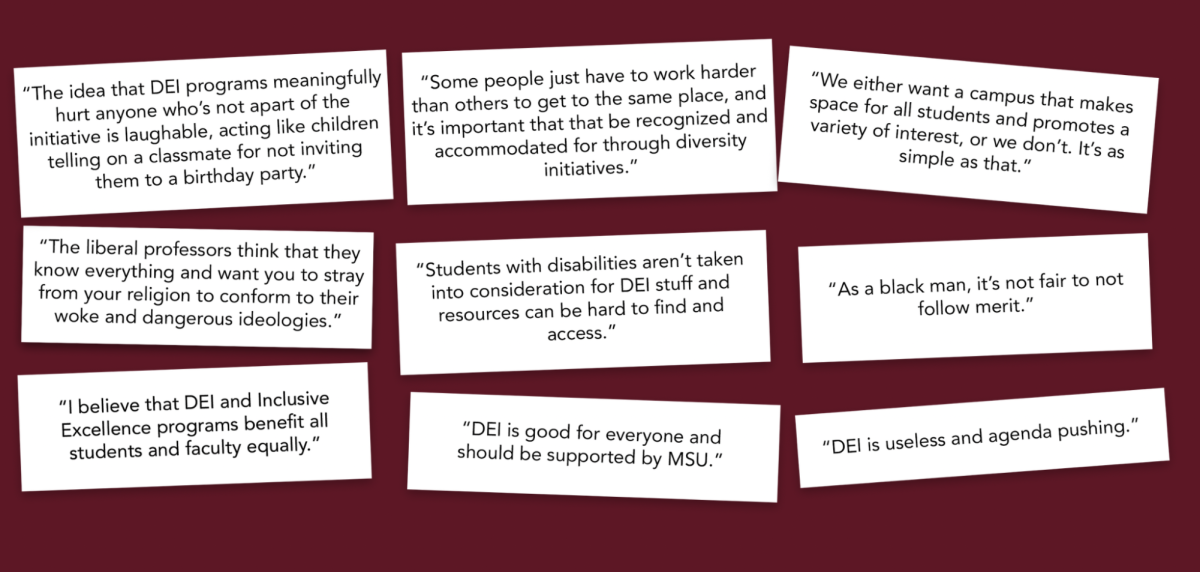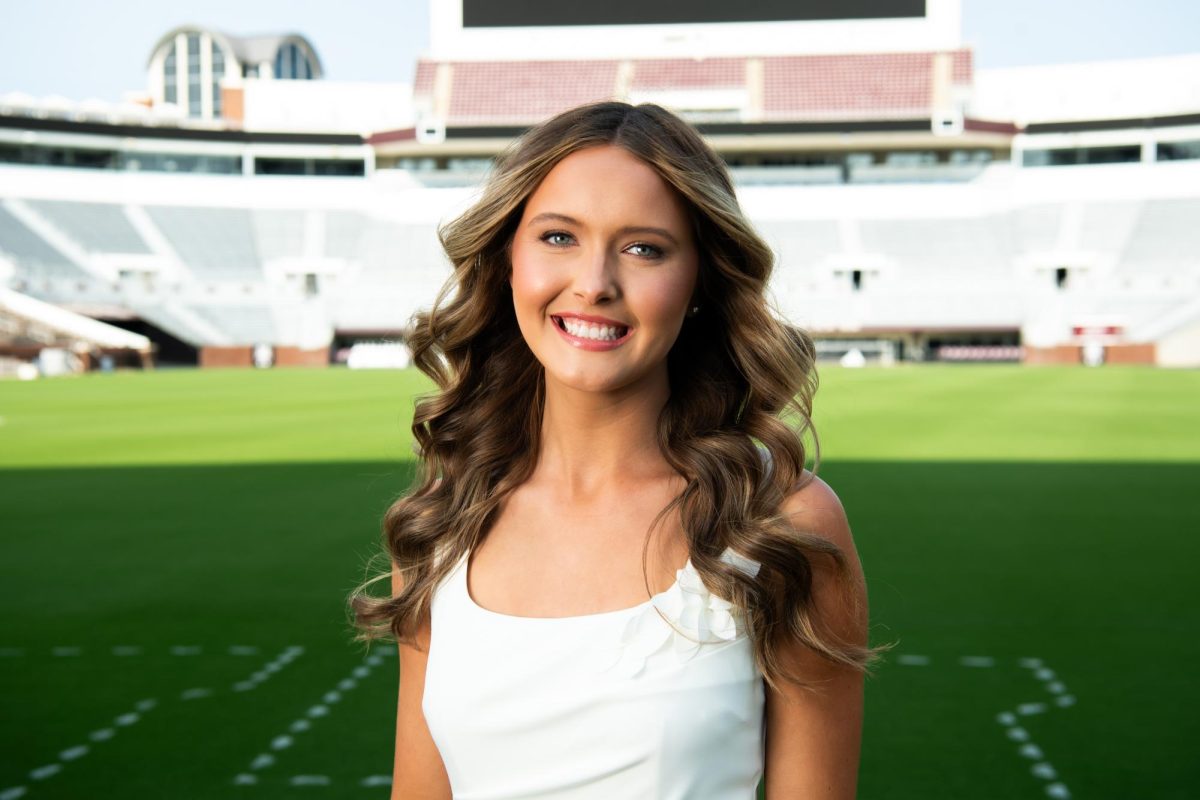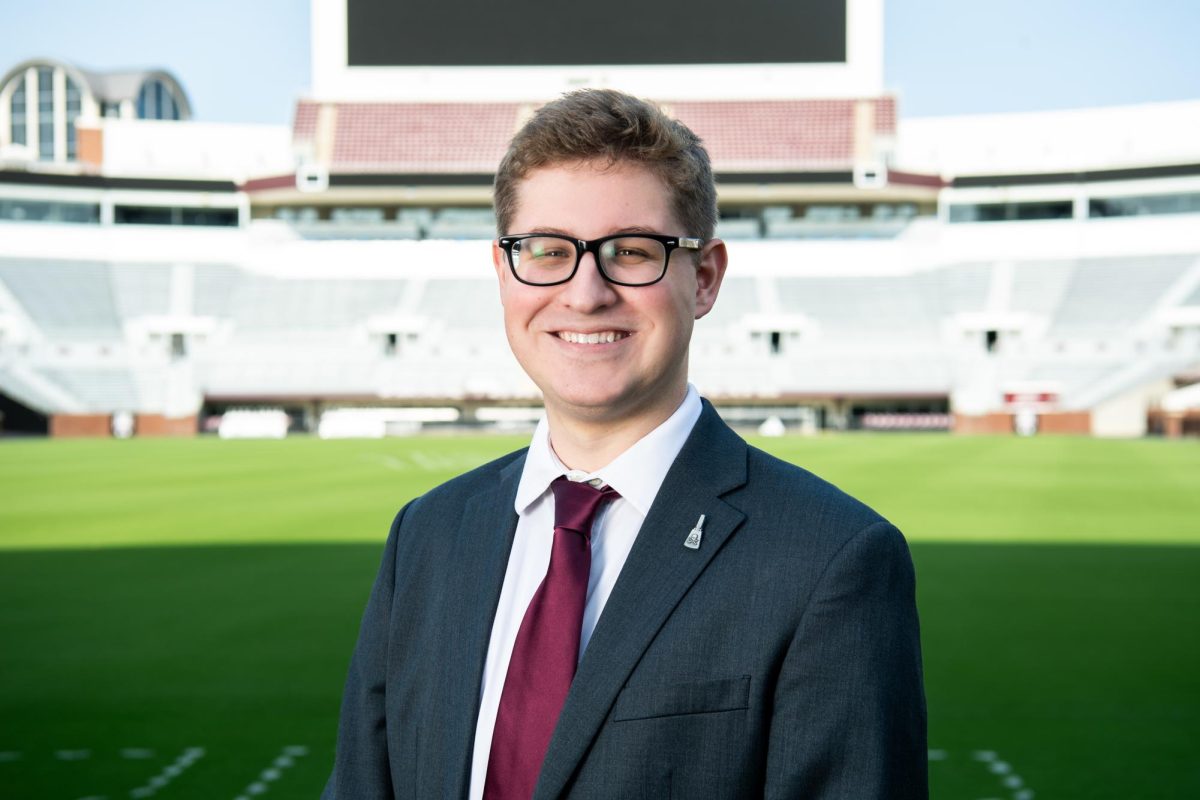Three student-led startup ideas were pitched in front of Mississippi State University’s Entrepreneurship Center Advisory Board last Friday to receive up to $2,000 to fund their business propositions.
VentureCatalyst is the program for both MSU staff and students that allows them to develop business ideas and pitch them in front of a select group of business-related individuals who will choose to provide start-up funding for the projects.
Parker Gleason, a junior biomedical engineering major, and Noah Winstead, a senior mathematics major, were the first to present in the “Shark Tank” type process.
Gleason spoke of an ongoing issue in coffee shops which involved the waste of electricity and lack of purchases. After researching and realizing many shops spent almost up to $3,300 on electricity a year, he sought to renovate the apparent issue and teamed up with Winstead to create the “Charge for Charge” proposal.
“Owners of coffee shops will spend anywhere from $2,000 to $3,300 on electricity throughout the year,” Gleason said.
“This problem ends up choking businesses and affecting their ability to grow and will sometimes even put them out of business,” Winstead said.
Charge for Charge is an idea that seeks to prevent businesses from wasting power and losing revenue. The process works through a cover placed on an electrical outlet that requires customers to buy a product, pay to access or watch an advertisement to use the store’s power for a certain amount of time.
“This problem creates a massive opportunity for us,” Gleason said.
The presentation outlined the waste of customers by refusing to buy a product but still using a large amount of power in areas such as coffee shops. Almost 23% of customers drain electricity in a business without giving compensation.
The duo set a goal to reach out to local coffee businesses if granted the $2,000, which they requested to begin perfecting and producing mass amounts of the product.
The next presentation was introduced by Devin Byrd, a senior chemical engineering major, who pitched a line of beauty products named Stem Cosmetics.
Stem Cosmetics is an opportunity for a plastic-free, biodegradable and organic makeup line. The presentation outlined the eco-friendly ingredients and containers produced behind the scenes that excel in comparison to any other organic-branded product on the market.
The products Byrd outlined help stop the problem of parabens, harmful chemicals and animal testing in makeup production while also combating the harmful effects on the environment from wasteful packaging.
The plastic containers that held the lipstick and samples, were molded by a co-founder, Conner Hollis, through the use of eco-friendly production and a specific biodegradable plastic that is produced through Green Dot Plastic.
The Stem Cosmetics team asked the board for a grant of $2,000 in order to refine their products in a nut-free fashion and continue to make a large number of prototypes that could be used in showcasing or distribution of the product.
The final presenter, Timothy Wunrow, a sophomore industrial engineering major, introduced the issue of Misophonia to the panel and described a lack of treatment for individuals with this condition. Misophonia is a condition that causes a person to become triggered by certain noises which will cause an extremely irritable reaction or a sense of panic.
Wunrow began his presentation by asking the panel a question.
“What if I told you that there was a multi-million person customer base that was looking for a product that no one was making?” Wunrow said.
To combat this issue in Misophonia patients, Wunrow introduced his product, Misobuds. Misobuds are engineered to combat the specific noises from which Misophones seek to withdraw. Wunrow plans to develop his idea through the usage of artificial intelligence and selective voice-canceling technology.
“They will completely take out all the noises that a person hears that would bother them, but none of the other noises, like normal noise-canceling headphones would do. They’ll be comfortable and people will be able to wear them when they’re sleeping, and they’ll be a lot more socially acceptable to wear than earplugs during a dinner party,” Wunrow said.
Wunrow asked the board for a grant of $2,000 to develop the AI technology which would allow him to develop his first prototype.
After the meeting, the ECAB members decided to fully fund all of the start-ups presented to give them a chance to further develop their product.
ECAB recap: Charge for Charge, Stem Cosmetics and Misobuds
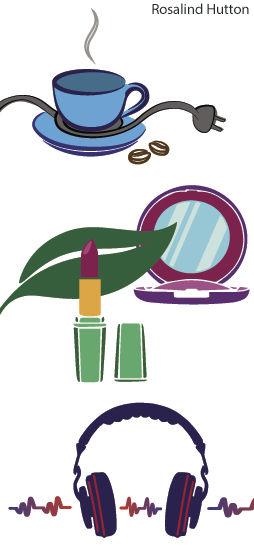
ECAB
About the Contributor
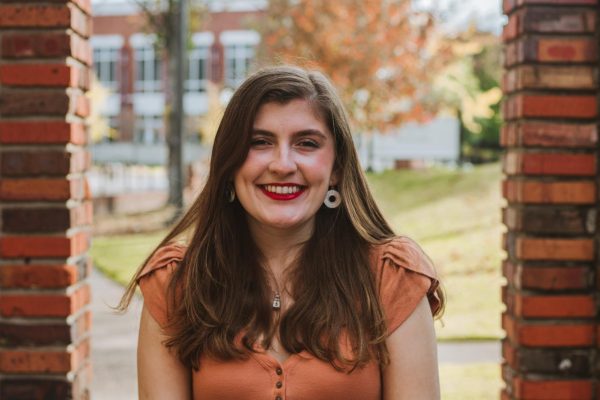
Payton Brown, Former News Editor
Payton Brown served as the News Editor from 2022 to 2023.
0
More to Discover













































